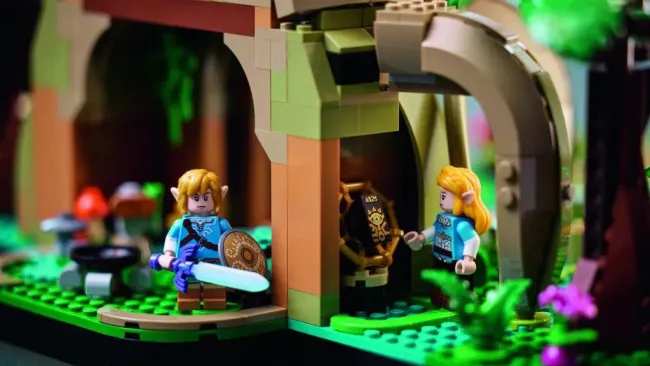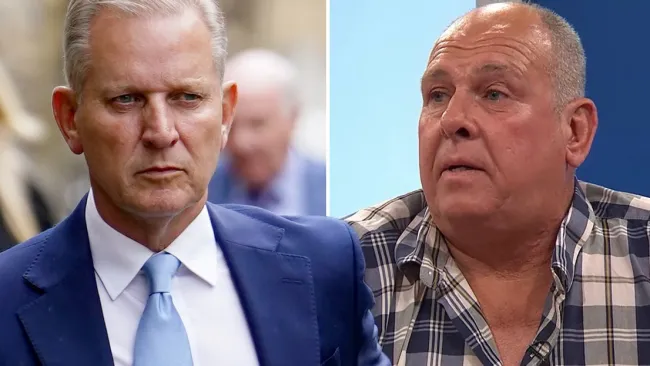A lawsuit brought over Prince Harry's visa status by conservative think tank The Heritage Foundation has been terminated, Newsweek can reveal.
The Duke of Sussex wrote in his memoir, Spare, how he had taken drugs including cocaine, marijuana and magic mushrooms. Heritage filed a Freedom of Information Act lawsuit against the Department of Homeland Security demanding the publication of Harry's visa documents, arguing that his use of narcotics should have barred him from living and working in America.
However, court records show that the case was terminated on September 9, when several sealed orders were filed in the case, heard in Washington, D.C. before Judge Carl J. Nichols.
Little is currently know about exactly why the case was brought to an end, or whether this means Harry's visa papers will now remain a secret. If that is the outcome, it will likely bring relief for Harry as Heritage had suggested his past drug-taking could undermine his right to live in America.
Heritage had suggested in filings seen by Newsweek that Harry must have either been dishonest about his past drug use or given favorable treatment due to his royal status and that he had eroded his own right to privacy.
Their lawyers wrote: "[The case] comes about in the main because HRH [His Royal Highness] voluntarily—and for immense profit—admitted in writing to the elements of any number of controlled substance violations. (Indeed, some say HRH has approached the point of bragging and encouraging illegal drug use.)
"The Duke of Sussex did so despite the fact that it is widely known that such admissions can have adverse immigration consequences for non-citizens and despite employing preeminent legal advisors on both sides of the Atlantic."
Government lawyers in turn argued in an earlier court filing that they "cannot confirm or deny whether any other records that [Heritage] are seeking exist because the mere acknowledgment of these records would constitute an unwarranted invasion of Prince Harry's privacy.
"The records are particularly sensitive because releasing them, even in part, would reveal Prince Harry's status in the United States, which Prince Harry has not disclosed.
"Specifically, the records would reveal the types of documents that Prince Harry used to travel to the United States, his admission status, and any immigration, or non-immigration, benefits that he may have sought.
"Courts consistently hold that a person's visa or immigration status is private, personal information exempt from disclosure."
Earlier this year, the judge asked to see Harry's visa records in private and Biden administration lawyers confirmed in April they had complied with the order.
Nichols was considering whether to dismiss the case or grant a quick win for Heritage at the point the sealed orders were issued and the case closed.
It is possible the orders may be at some stage be unsealed at which point it will become clearer what brought about the end of the lawsuit.
Newsweek contacted Heritage, the DHS and the Sussex camp for comment.
In Spare, Harry described doing cocaine as a teenager: "Of course...I had been doing cocaine around this time. At someone's country house, during a shooting weekend, I'd been offered a line, and I'd done a few more since. It wasn't much fun, and it didn't make me particularly happy, as it seemed to make everyone around me, but it did make me feel different, and that was the main goal."
And later in the book, he wrote: "Psychedelics did me some good as well. I'd experimented with them over the years, for fun, but now I'd begun to use them therapeutically, medicinally.
"They didn't simply allow me to escape reality for a while, they let me redefine reality.
"Under the influence of these substances I was able to let go of rigid preconcepts, to see that there was another world beyond my heavily filtered senses, a world that was equally real and doubly beautiful—a world with no red mist, no reason for red mist. There was only truth.
"After the psychedelics wore off my memory of that world would remain: This is not all there is. All the great seers and philosophers say our daily life is an illusion. I always felt the truth in that. But how reassuring it was, after nibbling a mushroom, or ingesting ayahuasca, to experience it for myself."
Jack Royston is chief royal correspondent for Newsweek, based in London. You can find him on X, formerly Twitter, at @jack_royston and read his stories on Newsweek's The Royals Facebook page.
Do you have a question about King Charles III, William and Kate, Meghan and Harry, or their family that you would like our experienced royal correspondents to answer? Email royals@newsweek.com. We'd love to hear from you.
Disclaimer: The copyright of this article belongs to the original author. Reposting this article is solely for the purpose of information dissemination and does not constitute any investment advice. If there is any infringement, please contact us immediately. We will make corrections or deletions as necessary. Thank you.





